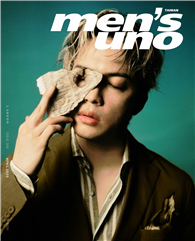Jackson’s Triad consists of structural integrity, functional stability, and esthetic harmony. An ideal position of the incisors on its apical base in all three planes of space plays a vital role in achieving this balance. Deep bite (or excessive vertical overlap) is a common symptom associated with Class II malocclusions and can be corrected with various modalities including intrusion of upper and/or lower incisors, extrusion of posterior teeth, and flaring of anterior teeth. The intrusion of the upper and lower incisors is the most effective way of correcting the deep bite, as it moves their root apices closer to the nose and lower border of the mandible, respectively. Intrusion is defined as the "tooth movement that occurs in an axial (apical) direction and whose center of rotation lies at infinity. It is an axial type of translation". It is often associated with an increase in the vertical dimension of the face, as well as an improvement in the aesthetic appearance. Relative intrusion/ pseudo-intrusion of the incisors can also be used, keeping them where they are while the mandible grows and the posterior teeth erupt. This method is used to maintain the mandibular plane angle.
| FindBook |
有 1 項符合
Intrusion Mechanics的圖書 |
 |
Intrusion Mechanics 作者:Jain 出版社:LAP Lambert Academic Publishing 出版日期:2024-10-09 語言:英文 規格:平裝 / 332頁 / 22.86 x 15.24 x 1.88 cm / 普通級/ 初版 |
| 圖書館借閱 |
| 國家圖書館 | 全國圖書書目資訊網 | 國立公共資訊圖書館 | 電子書服務平台 | MetaCat 跨館整合查詢 |
| 臺北市立圖書館 | 新北市立圖書館 | 基隆市公共圖書館 | 桃園市立圖書館 | 新竹縣公共圖書館 |
| 苗栗縣立圖書館 | 臺中市立圖書館 | 彰化縣公共圖書館 | 南投縣文化局 | 雲林縣公共圖書館 |
| 嘉義縣圖書館 | 臺南市立圖書館 | 高雄市立圖書館 | 屏東縣公共圖書館 | 宜蘭縣公共圖書館 |
| 花蓮縣文化局 | 臺東縣文化處 |
|
|
圖書介紹 - 資料來源:博客來 評分:
圖書名稱:Intrusion Mechanics
|







![塔木德:猶太人的致富聖經[修訂版]:1000多年來帶領猶太人快速累積財富的神祕經典 塔木德:猶太人的致富聖經[修訂版]:1000多年來帶領猶太人快速累積財富的神祕經典](https://media.taaze.tw/showLargeImage.html?sc=11100697818)



